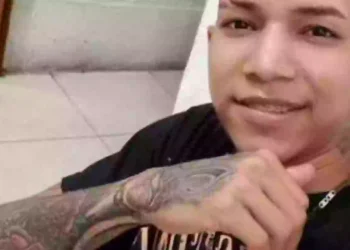Business bankruptcy is booming due to the coronavirus pandemic. Individual bankruptcies will likely follow suit as various forms of federal and state aid terminate soon, and social distancing protocols continue, keeping millions of citizens out of work nationwide.
Starting right now, you can take steps to organize your finances to avoid insolvency and bankruptcy. Here are the five budget mistakes that will force individuals to file Chapter 7 or Chapter 13 bankruptcy in the coming months.
Mistake #1: Failing to Save for Emergencies.
If you are lucky enough to be working right now, do not give up on saving. In this economic climate, you cannot be sure you will have a job in the future and you cannot be sure the government will continue to expand unemployment benefits.
Conventional wisdom suggests putting aside six- or -eight months’ worth of expenses in case of job loss or other emergencies. If you haven’t started saving, do so now. This is crucial to the well-being of your family.
If you are unemployed, the federal CARES Act provides an extra $600 a week and an extension of the state benefit term. Unemployment benefits plus $600 exceeds many workers’ regular income. Save some of this money… there is no guarantee that these provisions of the CARES Act will be extended or that you will be re-employed soon.
Mistake #2: Relying on Credit Cards to Pay Monthly Bills.
If you are not bringing in enough income and relying on credit cards to pay for monthly bills like food, gas, rent or mortgage, or utilities, you are on a slippery slope. Credit cards typically charge 16-24% interest, and even a series of small changes can add up quickly if you do not pay off your balance every month.
For example, let’s say you charge $20 each week to fill up your car’s gas tank. At the end of the year, that’s $1040 on your credit card. If you pay the minimum each month of $20 and stop charging purchases to that card, it will take you 8.4 years to pay it off and you will have paid $982.21 in interest! It’s outrageous to waste money that way!
It is better to cut expenses elsewhere to be able to pay cash or use your debit card to pay for a recurring expense like gas for your car. Over-reliance on credit cards is one of the most common reasons people are forced to file bankruptcy, says Philadelphia bankruptcy lawyer David Offen.
Mistake #3: Failing to Take Advantage of Mortgage Forbearance.
In response to the pandemic and resulting economic crisis, the federal government passed the CARES Act providing, among other things, mortgage forbearance. “Forbearance” is a period of time that homeowners do not have to pay their monthly mortgage payment, and the mortgage lender or servicer will not foreclose on the property.
To get this reprieve from having to make mortgage payments, homeowners must contact their mortgage lender or servicer to work it out. Forbearance is not automatic, and if you simply stop making your mortgage payments you will be in default, incur late charges, and if you don’t pay long enough, your lender or servicer will foreclose. People facing foreclosure often file bankruptcy as a last-ditch effort to save their homes.
If you are continuing to make mortgage payments when forbearance was available, but are struggling, call your lender or servicer. Right now, when the economy is uncertain, you need to retain those mortgage payments and put them in your emergency savings.
Mistake #4: Making a Major Purchase During the Pandemic.
Again, in these uncertain economic, you must conserve your resources to the extent that you can. Rather than trade-in your car for new, commit to driving your old one until the pandemic is over and the economy recovers. Deposit that car payment in your emergency savings instead.
If you are thinking of buying a new house, don’t! What if you move, you have a larger mortgage payment and less equity in your home, and one or more of your neighbors fall on hard times, don’t have the funds to maintain the home, defaults on their mortgage, and are foreclosed? This will certainly reduce the value of your property and is not an unlikely scenario.
Stay put. If you feel you can afford a more expensive home, put that money into emergency savings instead and wait until the economy improves.
Mistake #5: Dropping Health Insurance.
Yes, health insurance is expensive. And, if you lost your job due to the pandemic, continuing health care coverage through COBRA is also pricey. But the cost of health insurance is exceeded, by far, by the cost of uninsured medical treatment should you or one of your family suffer a serious injury, or contract a disease or illness such as COVID-19.
The most responsible thing you can do for your family is to maintain health insurance. It may hurt to write that check, however, it will hurt far more if you have to file bankruptcy due to medical bills you cannot hope to ever pay.
Saving and being conservative with your spending will help you weather this economic crisis and avoid bankruptcy. Good luck!
About the Author
Veronica Baxter is a legal assistant and blogger living and working in the great city of Philadelphia. She frequently works with David Offen, Esq., a busy Philadelphia bankruptcy attorney.












